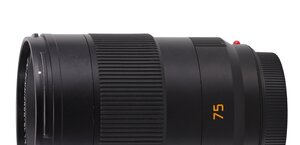Olympus M.Zuiko Digital 60 mm f/2.8 ED Macro
5. Chromatic and spherical aberration
Chromatic aberration
The longitudinal chromatic aberration is negligible. When it comes to a lens with such parameters we didn’t expect any problems with that aberration and we weren’t disappointed. The crops, shown below, are the proof.
 |
Please Support UsIf you enjoy our reviews and articles, and you want us to continue our work please, support our website by donating through PayPal. The funds are going to be used for paying our editorial team, renting servers, and equipping our testing studio; only that way we will be able to continue providing you interesting content for free. |
- - - - - - - - - - - - - - - - - - - - - - - - - - - - - - - - - - - - - - - - - - - - - - - -
The lateral chromatic aberration is also nothing to worry about. You can only notice the fact that it increases swiftly on stopping down. Still for most of apertures it remains low and only near f/22 it approaches medium level. It’s a pity this lens was designed this way; after all macro lenses are often stopped down so reverting the aberration graph would be perhaps more favourable. Even a noticeable level of chromatic aberration by f/2.8 would not constitute a serious problem because that relative aperture is often used in portraits or to separate the main topic from the blurred background so “colours” connected with moderate chromatic aberration are lost among the blur anyway.

 |
Spherical aberration
The spherical aberration is not corrected in a perfect way. It’s influence, fortunately, doesn’t manifest as focus shift but still you can perceive it in defocused photos of a diode, got at the maximum relative aperture. Images in front of and behind the focus differ markedly – the first is so to speak the negative of the other. In a place where in one circle you have a local minimum, in the other circle there is a local maximum. The effect is not very pronounced, being limited to the area near the maximum relative aperture; that’s why the influence of the aberration on the performance of the lens is slight. However by f/2.8 it is felt.







